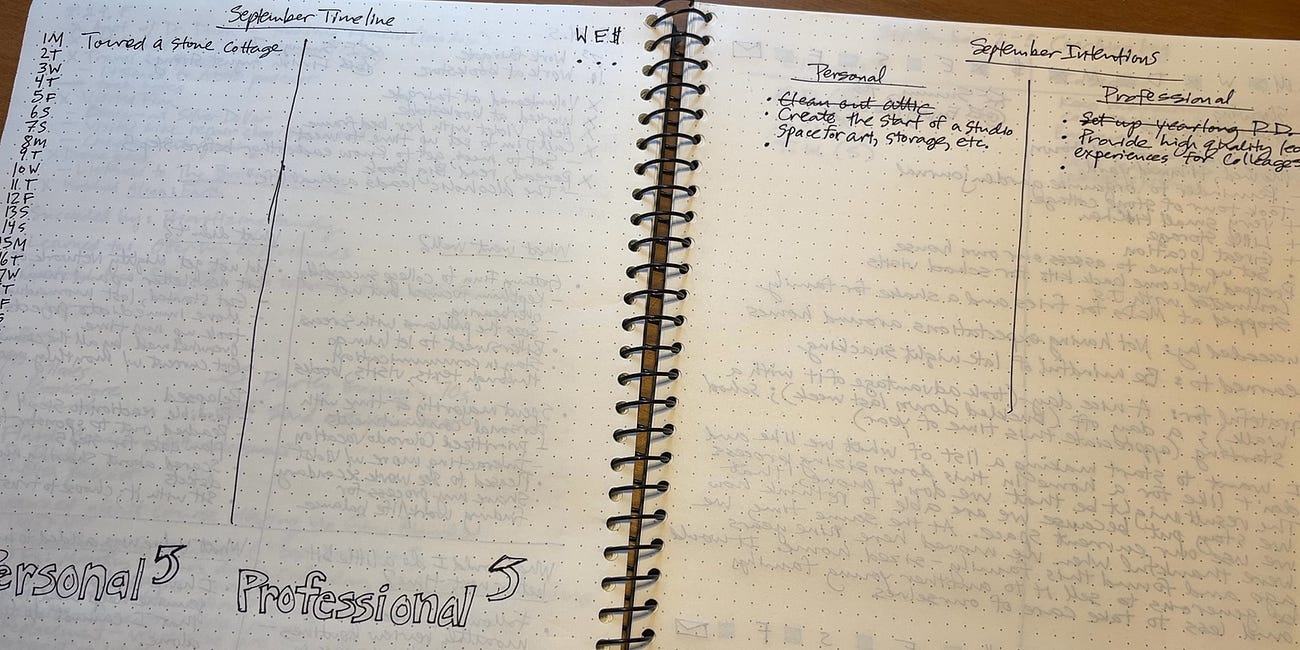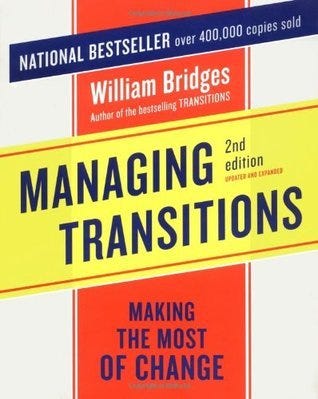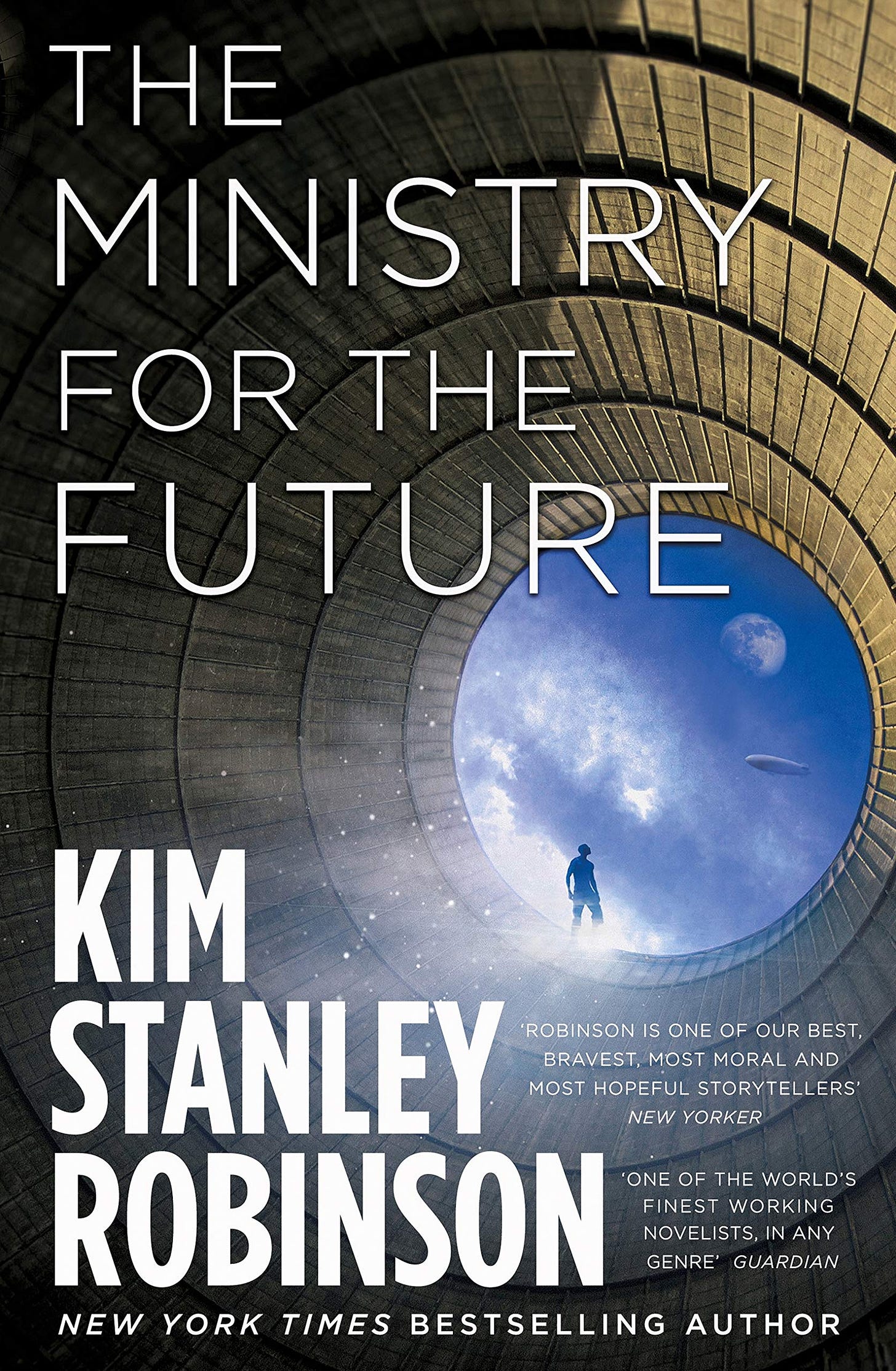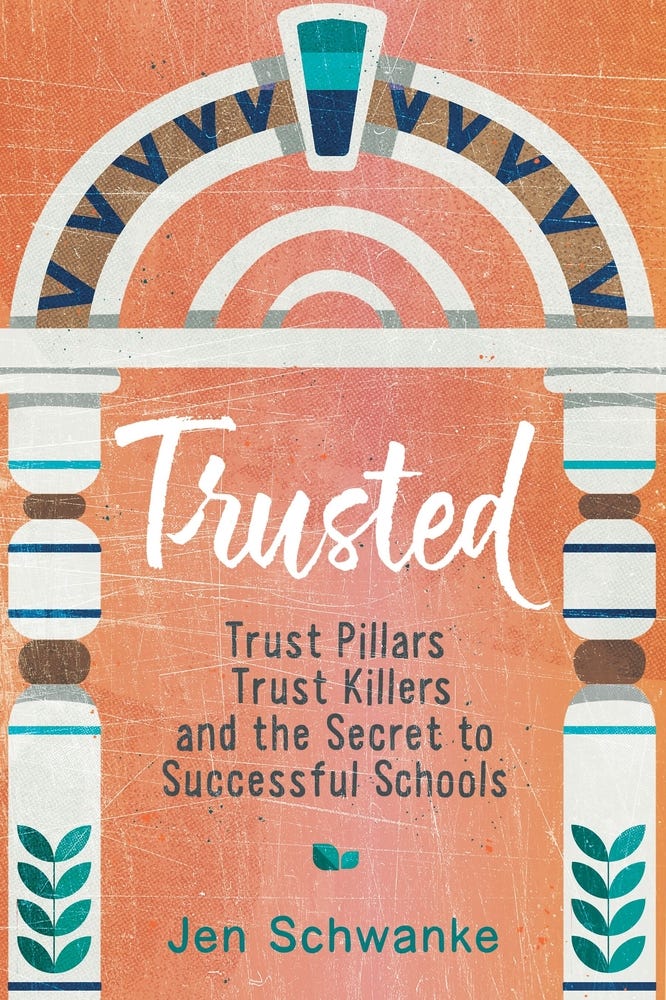Embracing the Messy Middle: Transitions in Education and Life
September 2025 Newsletter
Hello colleague,
I hope you are enjoying the start of a new school year. As a teacher and a principal, I was ready to go back for the fall. I was anticipating the new beginnings while carrying the hard-earned wisdom of years prior. The changing colors of the Wisconsin leaves were a visual reminder for me that nothing stays the same, and that it can be something to behold instead of feared.
This time of year is still an opportunity to reinvent my practice, habits, routines, maybe even myself. What could I start doing differently or reclaim? I don’t love the flipside of new initiatives: what to let go of in order to make room for something new. Transitions seem to require twice as much loss to create more space. I’d rather hold on to what is comfortable and known.
Loss is both emotional and tangible. Early in my teaching days at upper elementary, I dropped traditional guided reading from my practice. It wasn’t just a packing away of leveled readers in favor of conferring and flexible grouping. It was also releasing more control and responsibility to the students. Would they respond appropriately to this new level of authority? I couldn’t merely lesson plan my way to ensure the students were successful. I had to become more knowledgeable and skilled through professional reading and by accepting feedback on my new approaches. My students were always the best source for information on how I could improve.
I am not sure how I would operate if I were a teacher today. So much more has been added to educators’ plates, in particular new expectations for teaching readers being legislated in many states. Fortunately I do see educators adapting to these changes. The challenge is these changes are not on teachers’ and leaders’ terms. I fear this loss of agency is trickling down to the kids in the form of scripted lessons and prioritizing reading assessment over student engagement and genuine growth as whole readers.
But this is also change, a transition from the old to the new. We need more space, like a potted plant that has outgrown a new container. How we observe any experience influences how we perceive it. What lens do we choose to see the changing colors of the fall leaves: as a harbinger of winter to come, or of the beauty to appreciate right now? I’d prefer the latter.
Take care,
Matt
A New Cadence for a New School Year
In my quest to serve others, I am reducing my writing starting this month. I am getting a sense that people want less in their lives while remaining connected. With that, here is how the cadence for this newsletter will look going forward:
Beginning of the month: One newsletter article for all subscribers, which will include what I am reading and upcoming professional learning opportunities.
Second week: A video demonstration/screencast as part of The Instructional Leadership Toolkit, a new series on tools and strategies to support our teachers and ourselves (paid subscribers can access the demo at the start of the month, including the post below.)
The Monthly Log and Intentions
In this video demonstration, I share key journaling tools - simple tracking tools and intentions for success - to start my month. The ultimate goal is improving outcomes for teachers and students. That includes a sense of well-being, not just achievement. When others feel supported and successful, so do I as a coach and a leader. A written explanation is also available below if you prefer to read vs. watch.
Third week: A question in the chat to facilitate discussion around a related theme.
Note for all: All subscribers can now leave comments on posts, not just paid.
End of the month: A podcast episode for Literacy Unscripted, a monthly virtual conversation with other professionals (paid subscribers can join these conversations in real time).
I hope that with this regular cadence, a more diverse offering of information, plus a reduced amount of writing, this space will be a better fit in people’s lives.
Note for paid subscribers: If you are disappointed in less writing, or if you simply can no longer support this space financially, no worries if you would like to downgrade to a free plan. Click here for directions on how to do that.
What I’m Reading
(Titles link to my affiliate account through Bookshop.org. Thank you for supporting independent book stores and this space.)
Managing Transitions: Making the Most of Change by William Bridges (professional, Goodwill)
This book could serve as a primary textbook for principals, superintendents, and any instructional leader taking a course on school culture. Although this text is tailored to business, it is full of practical applications and relevant examples. The author gives specific language to the challenge (and opportunity) of living in continuous change. Bridges breaks down the process into three stages: acknowledging the past and letting it go, the “messy middle” of transition and growth, and embracing the new reality. Leaders who are mindful of this process can apply it to a variety of situations, for example implementing more promising literacy practices schoolwide.
The Ministry for the Future by Kin Stanley Robinson (science fiction/nonfiction, independent book store)
If I had read this in late 2020, right after Biden was elected president, I think I would have found this book more hopeful, more possible. We wouldn’t have to hit rock bottom as a planet to finally take collective action against climate change.
Reading it now in 2025, with environmental regulations currently being stripped away by the Trump regime, I still found this novel gave me hope. It depicts, through scientific reports and individual’s stories, how countries and leaders throughout the planet work together to avoid the worst outcomes of a warming planet. I walked away with a renewed appreciation for the importance of people serving in politics, especially those who do it in service of others instead of for personal power. Civil discourse, diplomacy, compromise: the qualities that brought the U.S. together are equally needed today.
I will keep the following quote from the novel in mind when I think about our current messy transition to a cleaner, greener future.
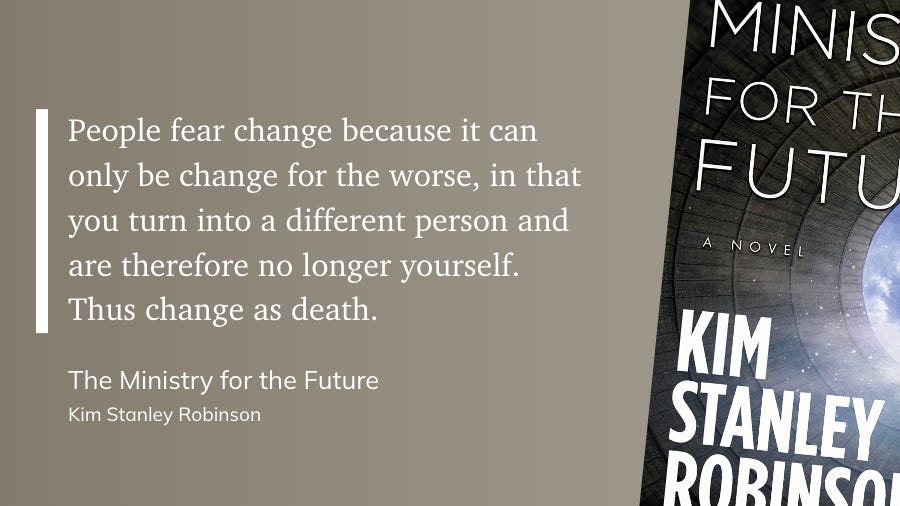
Knowledge Work is Dying - Here’s What Comes Next. by Joe Hudson (online article, Every)
“Today, as models swallow entire fields overnight, wisdom—skills like emotional clarity, discernment, and connection—is what keeps you indispensable.”
Joe Hudson, a leadership coach for technology executives, offers his perspective on how people should adapt to a future with A.I.
His primary position is that simply having knowledge is no longer enough. [Not-so-subtle nod to the knowledge matters folks.] Jobs that have relied on knowing stuff will be outsourced to large language models such as ChatGPT, Claude, and Gemini.
“One highly trained model will soon be able to outperform an expert in physics, law, and engineering—simultaneously, at any hour. Facts, skills, and expertise will be increasingly commoditized, and even the smartest of us will be replaceable.”
Instead, Hudson believes that wisdom will be the next necessary quality/skill one needs to possess to thrive in an A.I.-immersed world. He suggests two ways to build one’s wisdom:
Become a better listener through emotional attunement and creating psychological safety; in other words, be a coach (I like his framework that he teaches others: VIEW: Vulnerability, Impartiality, Empathy, and Wonder.)
ask better questions around our problems, such as the following:
“How you answer these questions will set you apart: What do I want and how do I own it? What kind of leader do I want to be? What’s the most effective thing for me to be doing at this moment? What does “effective” even mean to me? These are not problems of knowledge or information. They are a matter of wisdom.”
Upcoming Events
Thursday, 10/2/25, 5:30pm CST: Jen Schwanke, principal and literacy leader, and I will be talking about her book Trusted (ASCD, 2025). We will explore this all-important feature of successful schools, especially through a literacy lens. Full/paid subscribers can join us for this professional conversation.
Next month, I will be hosting a live, four-session virtual course on how principals and other leaders can empower teachers through coaching skills and strategies. Enrollment is capped at ten people; reserve your spot today.


